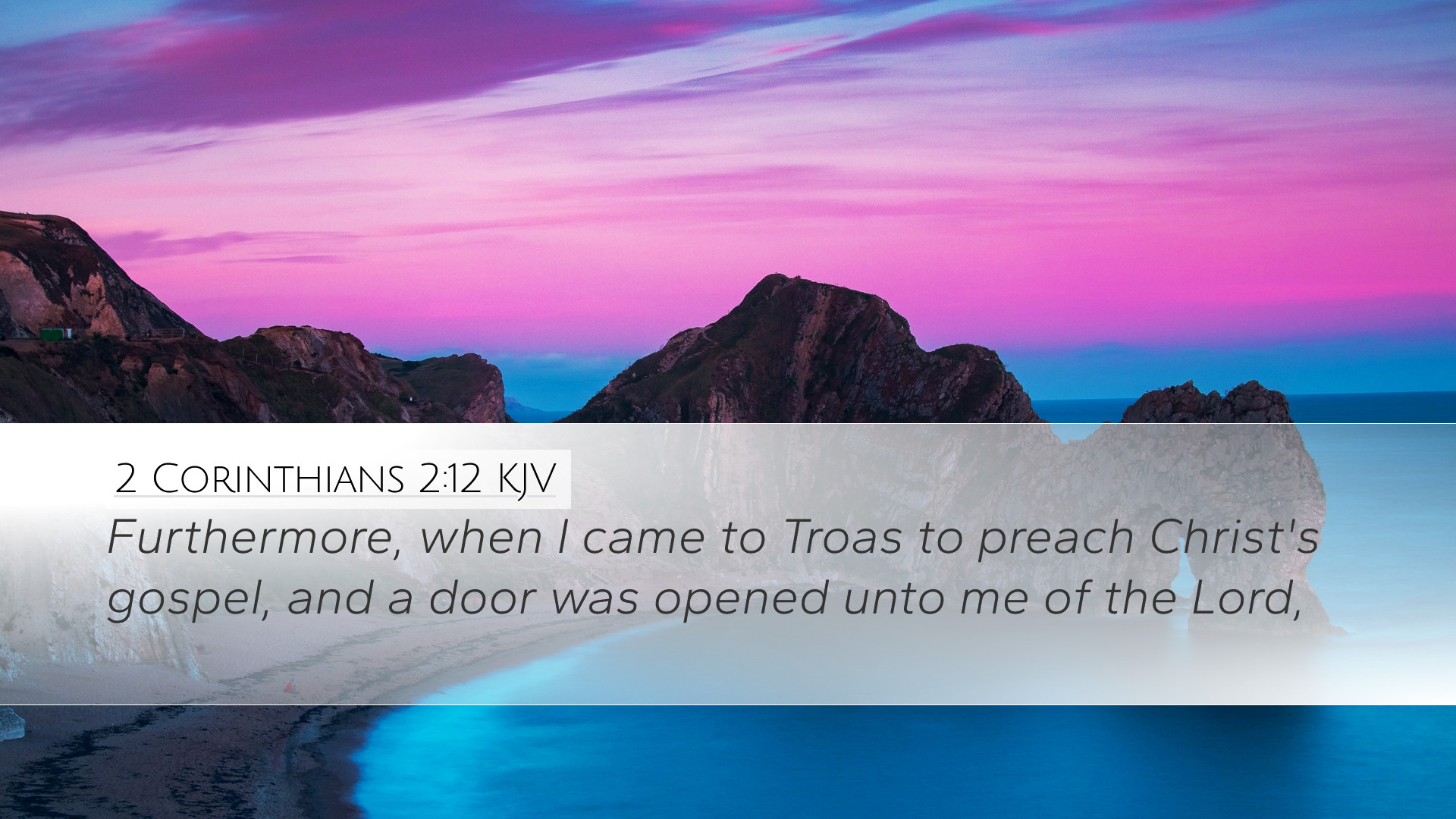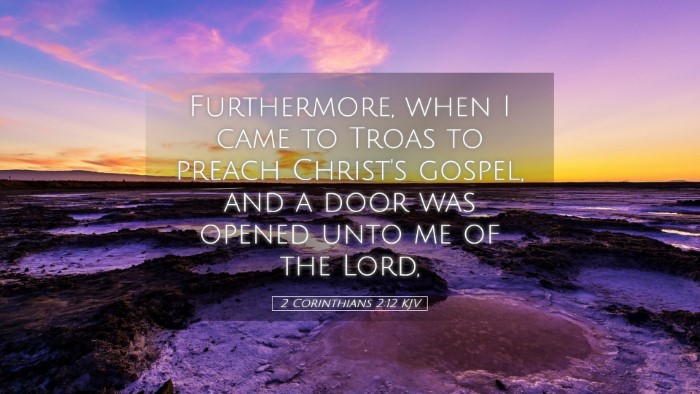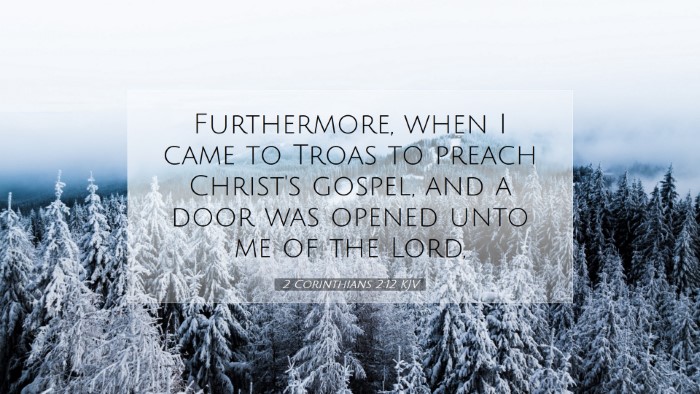Commentary on 2 Corinthians 2:12
In 2 Corinthians 2:12, the Apostle Paul communicates a significant moment in his missionary journey and his relationship with the Corinthian church. The verse reads, "Furthermore, when I came to Troas to preach Christ’s gospel, and a door was opened unto me of the Lord."
Contextual Overview
This verse is part of a larger discourse where Paul reflects on his experiences and emotions related to his ministry and interactions with the Corinthians. The backdrop of Paul’s writings shows his deep concern for the spiritual state of the church, coupled with his personal challenges in ministry.
Insights from Matthew Henry
Matthew Henry emphasizes the significance of the apostolic call to preach. He notes that “a door was opened” signifies a divine appointment and an opportunity for ministry provided by God. Henry expresses that God's providence leads faithful servants to the right paths, asserting that the advancement of the gospel sometimes entails facing adversities. Paul’s resolve to preach in Troas reflects his commitment to the mission despite previous challenges in Corinth, illustrating divine guidance.
Openness to the Gospel
Henry also discusses the concept of openness in the context of evangelism. He highlights that the “door” not only represents opportunity but also the readiness of individuals to receive the message of Christ. This openness is vital for effective ministry and encourages pastors and students to remain vigilant and responsive to God’s leading.
Insights from Albert Barnes
Albert Barnes provides a more detailed exegesis of the passage, focusing on the historical context of Troas as a significant port city. Barnes explains that this location was central for spreading the gospel to Asia Minor and beyond. Paul’s arrival in Troas can be seen as a strategic move, and the opening of a door symbolizes both the privilege and responsibility that comes with sharing the gospel.
Theological Implications
Barnes asserts that the opening of this door not only illustrates God’s provision but also reflects the interconnectedness of spiritual warfare and ministry opportunity. He encourages believers to view open doors as a divine endorsement of their calling and an invitation to engage in spiritual battles. This perspective challenges pastors and theologians to seek God’s guidance actively and recognize when He is urging them to advance His kingdom.
Insights from Adam Clarke
Adam Clarke offers a practical application by discussing the emotional aspects tied to Paul’s ministry. He notes that after experiencing grief and conflict in Corinth, the opening of a door in Troas was both a relief and a fresh motivation for Paul. Clarke highlights the human element of ministry—encouragement often follows trials, stating, "These transitions in life denote the various dispensations of Providence."
Spiritual Resilience
Clarke further expounds on the need for resilience among ministers. He points out that even amidst distress, as Paul faced, God often opens new avenues for effectiveness in ministry. This resilience encourages students and scholars to persist in their commitments through struggles, reflecting the truth that God can use any circumstance for His glory.
Application for Pastors and Theologians
-
Recognizing Opportunities: Like Paul, pastors must remain alert to “doors” God opens for ministry, leading to spiritual growth and evangelistic efforts.
-
Embracing Challenges: The struggles faced in ministry, exemplified by Paul's grief, can serve as catalysts for deeper reliance on God and new opportunities for outreach.
-
Supporting One Another: In times of discontent or struggle, the church body should come together to provide support and encouragement, as seen in Paul’s community with the Corinthians.
-
Continual Prayer: The reflection on divine opportunities emphasizes the necessity of prayer, allowing ministry leaders to discern God’s will in their lives effectively.
Conclusion
2 Corinthians 2:12 serves as a profound reminder of God’s active role in opening doors for ministry and the importance of perseverance in the face of trials. It calls pastors, students, and theologians to remain attentive, resilient, and committed to the mission of spreading the gospel, understanding that each opportunity presents a unique chance to glorify God through their efforts and to serve their communities.


